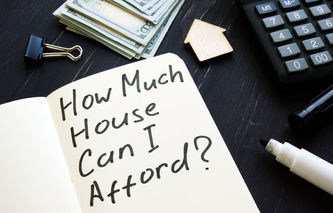Work hard, play hard; we've all heard that expression. More than ever before, people are buying a second home along coastal towns and resort communities.
According to the National Association of Realtors, when asked for the reasons for buying a second home, the majority of people answered vacation (51%), followed by retirement (18%), investments (16%) and rental income (15%). With the laws of supply and demand always at play, the interest in buying a second home has fueled a booming real estate market in coastal and resort areas around the country.
Investing in a Second Home
Regardless of the reason for buying a second home, the fact remains that most individuals also view that home as an investment; one that is a little more complex than buying stocks or bonds. That's because unlike other investments, homes usually don't appreciate or depreciate in value quickly.
Appreciation in Home Values
Homes can also be difficult to sell in a down market, making liquidity a problem if the owner needs to cash out on the investment. It's possible to hedge against a down market by sticking to some of the same home buying principles followed when purchasing a primary home. For the most part, location remains the golden rule.
In the same way that school systems and access to transportation increases the value of a home, there are things to consider when investing in a second home or vacation home. No doubt it's important to take a look at how close the home is to beaches, golf courses, lakes, mountains, and other recreational areas.
But also keep in mind the factors that may not be so obvious when assessing a vacation community. Make sure there is adequate access to the area including highways and public transportation. Also be prepared for the unexpected, which means easy access to hospitals and other healthcare facilities.
Tax Implications of Owning Second Homes
The tax experts tell us that a second home is defined as a house, condominium, house trailer and a boat if it has all the essentials such as a sleeping area, cooking, and bathroom facilities. These same "tests" also apply to recreational vehicles that may also qualify as second homes.
Tax Deductions
If a taxpayer is able to itemize deductions on their tax return; the interest expense on a second mortgage is tax deductible. The exact deduction that can be taken on a tax return may be limited if the mortgage exceeds the fair market value of the home. In addition, if the total of all mortgages (second home and primary residence) is in excess of $1 million ($500,000 for married, filing separately); the taxpayer may not be able to deduct all of the interest expense.
Real estate or property taxes paid can be claimed on a second home when itemizing deductions. In addition, any mortgage points paid when buying a second home are deductible over the life of the loan.
Rental Income
Even though it is not explicitly stated as one of the primary reasons for buying a second home, many buyers do rent out their homes for a good part of the year. At the low end of this scale, it's possible to rent out the home for two weeks of the year without paying any tax on the rental income.
Anyone thinking of renting out the home to pay for the mortgage and other costs associated with owning that second home; be forewarned. While renting out a vacation home can help to lighten the financial burden, rental income almost never completely covers the cost of the mortgage and maintenance of the home.
Taxes and Rental Income
The exact tax rules that apply to rental income really depend on whether or not the second home is used as a residence. A second home is considered a residence if the owner or a family member use the home for personal reasons for more than 14 days each year, or 10% of the number of days that the home is rented (at fair market value), whichever is longer.
If a home is rented for more than 14 days, the owner must report the rental income on their federal income tax return. They can also report and deduct their rental expenses up to the amount of the rental income they're claiming. If itemizing deductions, then interest expense and taxes that are in excess of the rental income can also be deducted on a return.
The above rules do not apply if a taxpayer does not meet the residence test mentioned above. In that situation, they would report the income and expenses in the same manner as they would with other rental properties owned. For example, the only expenses they can deduct include taxes, interest, and casualty losses that are attributed to the taxpayer's use of the second home.
Financing a Second Home Purchase
When thinking about buying a second home, it's important to make sure it's affordable. We have a number of online mortgage calculators that can help with this decision, including:
Simple Mortgage Calculator: provides some very basic information on monthly mortgage costs.
Mortgage Qualifier: can help figure out the maximum mortgage based on a household's income.
Blended Rate Mortgage: helps evaluate two mortgages taken together.
Refinancing a Mortgage: can help visualize scenarios involving the refinancing of an existing mortgage.


